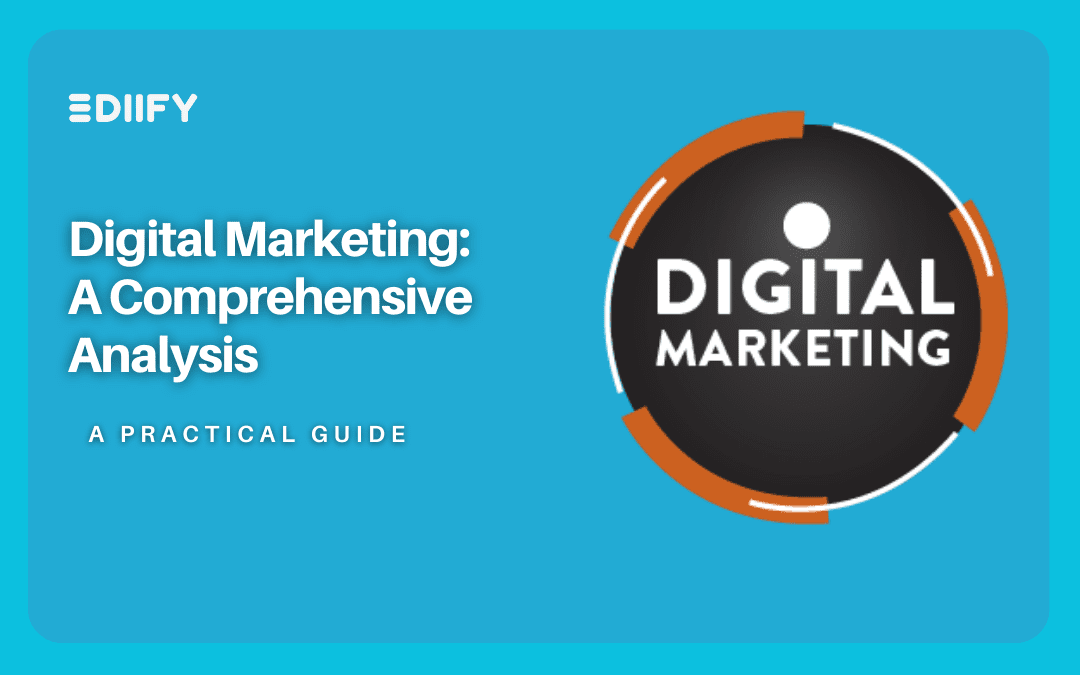Introduction:
In the dynamic world of business, where the digital landscape undergoes constant transformation, digital marketing has emerged as a crucial driver of success. As businesses strive to establish their presence in the online sphere, understanding the strengths, weaknesses, opportunities, and threats (SWOT) analysis of digital marketing is essential. This strategic analysis offers a comprehensive insight into both internal and external factors that can impact a digital marketing strategy. Let’s delve into the intricacies of digital marketing through the lens of a SWOT analysis.

Strengths:
- Precision in Targeted Marketing: Digital marketing enables businesses to precisely target their audience based on demographics, interests, and behavior. This targeted approach ensures that marketing efforts are concentrated on reaching the most relevant audience, thereby increasing the chances of conversion.
- Measurable Metrics: Unlike traditional marketing, digital marketing provides a plethora of metrics for performance measurement. From website traffic and social media engagement to conversion rates, marketers can analyze data in real time, allowing them to refine strategies and optimize campaigns for improved results.
- Cost-Effectiveness: Digital marketing often proves to be more cost-effective than traditional methods. Utilizing tools like pay-per-click (PPC) advertising, businesses can manage their budgets efficiently, allocating resources to the most effective channels.
- Global Reach: The digital landscape breaks down geographical barriers, offering businesses the opportunity to reach a global audience. This expansive reach opens up new markets and customer segments, fostering business growth beyond local boundaries.
Take a look at the below blog types of marketing strategy
https://ediify.com/types-of-marketing-strategy-to-help-your-business-grow/
Weaknesses:
- Dependency on Technology: The rapid evolution of technology can be a double-edged sword. While it provides cutting-edge tools and platforms for marketers, it also means that strategies may become obsolete quickly. Businesses must stay vigilant and adapt to technological changes to remain competitive.
- Information Overload: The digital space is saturated with information, making it challenging for businesses to stand out. Cutting through the noise and capturing the audience’s attention requires creative and strategic efforts, and failure to do so can lead to messages being lost in the vast online landscape.
Take a view at the below blog the Key to Unlocking Your Brand Potential
https://ediify.com/marketing-strategy-the-key-to-unlocking-your-brands-potential/
Opportunities:
- Social Media Dominance: The prevalence of social media platforms presents a significant opportunity for businesses to connect with their audience. Leveraging the power of social media marketing can enhance brand visibility, build relationships, and drive customer loyalty.
- Emerging Technologies: Innovations such as augmented reality (AR), virtual reality (VR), and artificial intelligence (AI) offer exciting opportunities for digital marketing. Integrating these technologies into campaigns can create immersive and personalized experiences, setting brands apart from the competition.
Take a look at the below blog on the swot analysis of yourself
https://ediify.com/swot-analysis-of-yourself-examples/
Threats:
- Data Privacy Concerns: With increasing awareness of data privacy, businesses must navigate carefully to avoid infringing on consumer trust. Strict regulations, such as GDPR, highlight the importance of transparent data practices to mitigate the risk of legal and reputational consequences.
- Intense Competition: The digital space is highly competitive, with businesses vying for the attention of the same audience. Staying ahead requires constant innovation and differentiation, as failure to do so may result in losing market share to more agile competitors.
Conclusion:
In the ever-evolving landscape of digital marketing, a SWOT analysis of Digital marketing serves as a guiding compass for businesses. Recognizing strengths, addressing weaknesses, capitalizing on opportunities, and mitigating threats are essential steps toward building a robust and effective digital marketing strategy. As technology continues to shape the future of marketing, businesses that embrace change, stay adaptable, and harness the full potential of digital channels will find themselves at the forefront of success.



